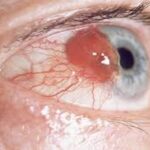“Author : Dr. Pinaki Mahato, Medical Oncologist, HCG Cancer Centre – Vadodara”
New Delhi, June 08, 2022:
The role of genetics in determining whether a particular type of cancer has been inherited or has occurred due to environmental factors such as exposure to radiation is phenomenal. While the root causes of many types of cancers remain unknown, Oncologists and researchers are using genetic testing and Cancer genomics to customize treatment and administration of drugs to target the cancerous cells better without causing any damage to the healthy cells and analyze risk of other cancers.
Genes and Cancer Risk
Many consider cancer as a random disease wherein the flawed cells in the body, due to their severity and place of origin, can cause cancer. It is a genetic disease that is caused when certain changes take place in our genes which control the functioning of the cells, ways they grow and divide. The DNA in our body is known as the genetic blueprint in each cell. Genes help pass on the inherited traits like height, eye color or hair color from the parents to the child. Similarly, these genes can also affect the kind of diseases that the child is likely of suffer from, including cancer. Mutations or changes in the genes play a crucial role in the development of cancer as it can cause the protein in the cell either to grow and divide into new cells. When this mutation causes cells to grow uncontrolled, it can lead to cancer.
In each person’s cancer cells, the genetic changes are unique and will continue to change further as the cancer cells grow. Therefore, any patient diagnosed with cancer must know their family history to determine the risk of inherited mutation and development of other cancers. The most common types of cancers that may be at risk of being inherited mutation are breast cancer, endometriosis cancer, prostate cancer, pancreatic cancer and ovarian cancer.
Genetic Testing
Cancer is often referred to as “family run” disorder that can easily make the patient and the family members anxious about passing on the trait or finding out the truth of inherited mutations. Sometimes, post-diagnosis of cancer, the doctor may perform tests to look for mutations in the genes. In such cases, Genetic Testing can help look for certain types of mutations or changes in the genes and understand the risk factors. There are different types of genetic tests conducted, including predictive genetic testing to look for inherited gene mutations in people with higher risk of getting some kind of cancer. This type of testing is recommended for patients with family history of particular types of cancer, and to check if those cells carry a gene mutation that increases their risk. For patients already diagnosed with cancer, genetic testing can assess factors that indicate cancer caused by an inherited mutation and risk of some other cancers, and for family members of a person who is known to have an inherited mutation that increases cancer risk.
BRCA mutation testing: BRCA gene test can help determine if there are any changes in the DNA that can increase the risk of breast cancer, ovarian cancer, pancreatic cancer, prostate cancer, melanoma.
FAP test: This test is done to find out about familial adenomatous polyposis (FAM), a genetic condition. This is diagnosed when a person develops multiple colon polyps and are likely to develop colorectal cancer. Patients with FAP have an increased chance of developing cancer in the other organs including stomach, pancreas, small intestine, and biliary tree. There is also a risk of hepatoblastoma (rare type of liver cancer) associated with children with FAP. It must be kept in mind that not all the symptoms of FAM indicate cancer.
HNPCC (Hereditary Non-polyposis Colorectal Cancer) Test: This test is done to find out the chances and risks of developing colorectal cancer as inherited mutation with a family history of HNPCC and can grow cancerous in other organs including ovaries or uterus, GI tract, kidneys or urinary tract.
Genetic testing is usually recommended for people with a certain pattern of cancer found in the family. For instance, first of kin relations (parents and siblings, children) with cancer, relatives with same type of cancer, cluster of cancer linked to single gene mutation, family member with more than one type of cancer, family member with childhood cancers or rare cancers, etc. are at risk and must be tested.
It is important to know your family medical history and be cautious about any risk of developing cancer. If you notice any symptoms of a particular type of cancer, seek medical help and talk to your physician immediately.
healthysoch







